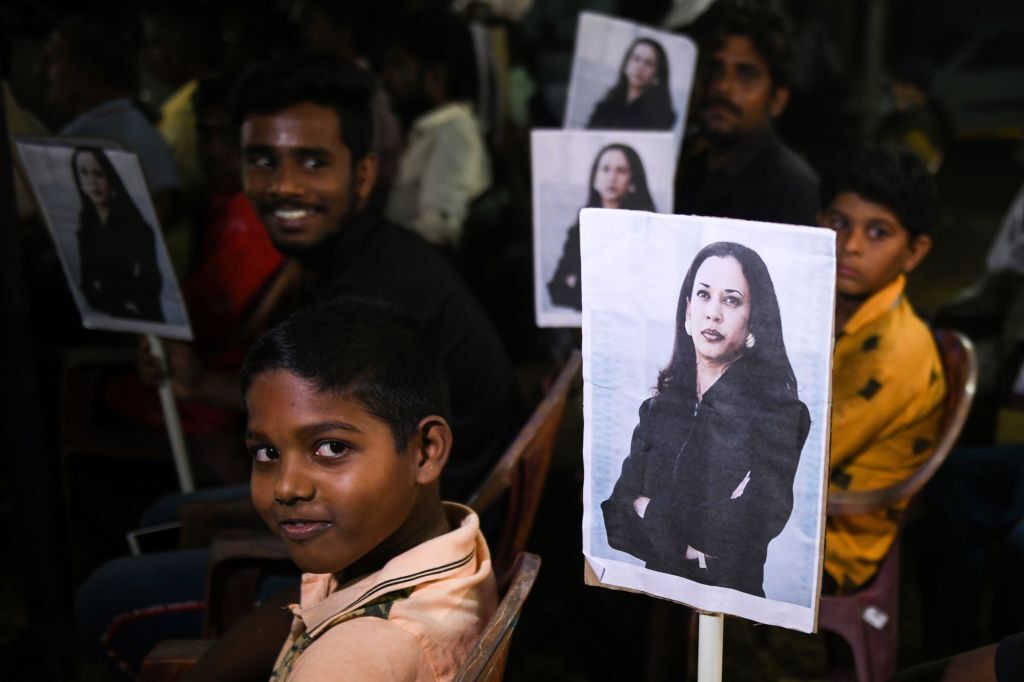It is a new and exciting feeling to see myself in a presidential candidate.
It’s Indian girl summer.
On Monday, Vice President Kamala Harris officially secured the delegates needed to clinch the Democratic nomination for president, making history as the first Black American woman and first Indian American woman to be a presumptive presidential nominee. Harris is no stranger to being the “first,” and with every barrier she breaks, she ensures more women, people of color and women of color like me will follow.
Growing up in Vice President Harris’ home state of California as a young Indian American woman, Kamala Harris fills me with pride and hope for myself and other young brown girls like me.
I’ve followed VP Harris since her days in the U.S. Senate, watching her grill Justice Brett Kavanaugh and Bill Barr. As a teen lobbyist for gun violence prevention, voting rights and racial justice in Congress, I often passed her Senate office and smiled at the posters celebrating Dreamers and the Transgender Pride flag. Most recently, I have followed her work to address the maternal mortality crisis and cheered on her fiery speeches fighting for women’s reproductive freedom in a time of increasing attacks on bodily autonomy that disproportionately affect women of color.
These are the issues that young people, and particularly young women of color, will be voting on in November.
I’m an Indian American woman, so Vice President Harris’ campaign is personal to me. She speaks often of how her mother, Shyamala Gopalan, courageously left India to study at U.C. Berkeley at age 19. At Berkeley, Gopalan met VP Harris’ father, Donald Harris, as they were both involved in civil rights advocacy and part of a group that discussed African American history and literature. Harris says her mother experienced discrimination because of her accent. Despite this, Shyamala raised Harris and her sister, Maya Harris, to believe in themselves and stand up for others.
“My mother would often say to me: ‘Kamala, You may be the first to do many things. Make sure you are not the last,’” wrote Harris in 2022.
As Indian Americans, we must redouble our support for combating anti-Blackness and promoting racial justice.
My own grandparents immigrated to the U.S. from India in the 1970s and experienced the difficulties that many immigrant families face as the first generation to come to this country. My maternal grandmother helped sponsor her siblings to join her in America while building a new life, completing her residency to become a pediatrician and starting a family. I am proud that an Indian American woman who celebrates her immigrant heritage is at the top of a major party ticket.
On Sunday, 44,000 Black women joined a zoom call to organize for Harris’ campaign. This energy is infectious and I hope that the Indian American community will show up for Vice President Harris as both a Black woman and an Indian American woman. As Indian Americans, we must redouble our support for combating anti-Blackness and promoting racial justice.
I’ve watched Vice President Harris make masala dosas alongside Mindy Kaling, tell her mother’s story, and speak to leaders in the Asian American and Pacific Islander communities. I am proud to see her embrace her Indian roots on the national stage. It is a new and exciting feeling to see myself in a presidential candidate.
As a student at Harvard College, I run a national conference for Future Leaders in Public Service, where hundreds of service-minded young people come to learn to be changemakers in their communities. Many of our students are young women of color, young brown and Black girls, who are fired up to make change.
Up next:
U.S. democracy is at a dangerous inflection point—from the demise of abortion rights, to a lack of pay equity and parental leave, to skyrocketing maternal mortality, and attacks on trans health. Left unchecked, these crises will lead to wider gaps in political participation and representation. For 50 years, Ms. has been forging feminist journalism—reporting, rebelling and truth-telling from the front-lines, championing the Equal Rights Amendment, and centering the stories of those most impacted. With all that’s at stake for equality, we are redoubling our commitment for the next 50 years. In turn, we need your help, Support Ms. today with a donation—any amount that is meaningful to you. For as little as $5 each month, you’ll receive the print magazine along with our e-newsletters, action alerts, and invitations to Ms. Studios events and podcasts. We are grateful for your loyalty and ferocity.


